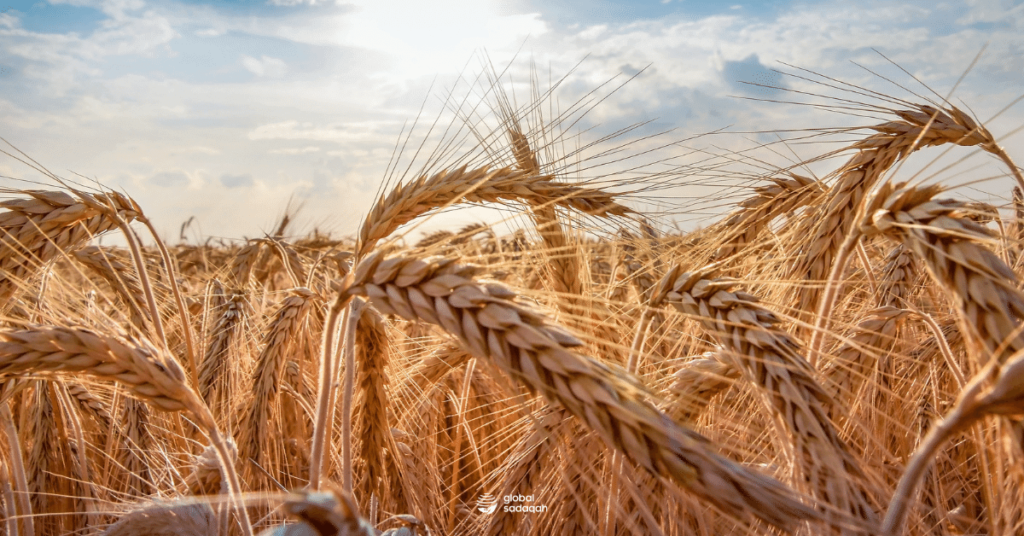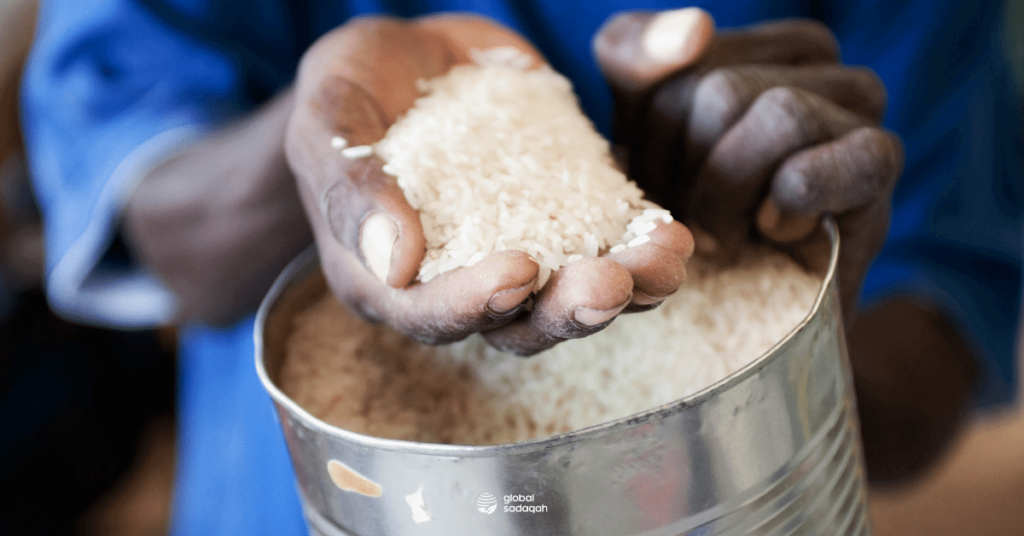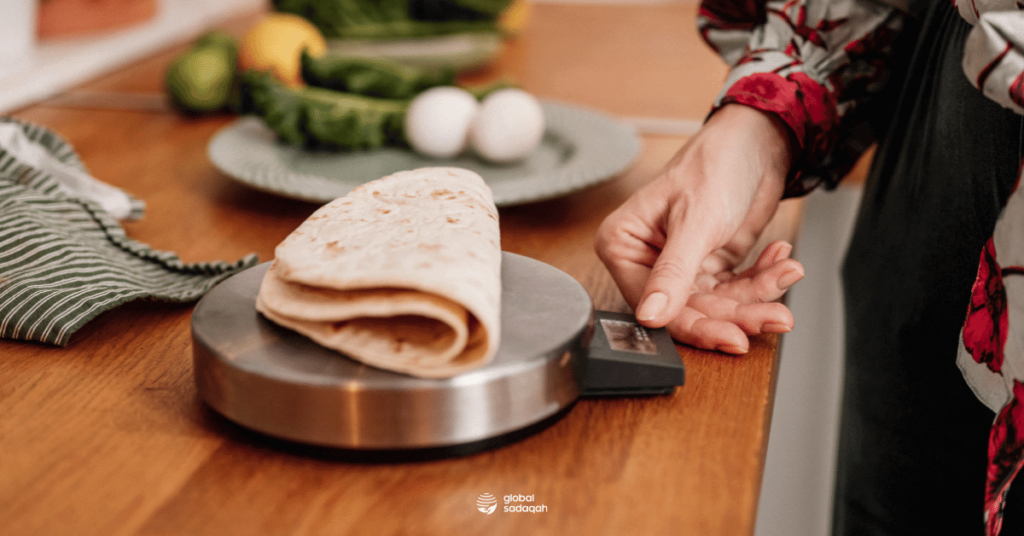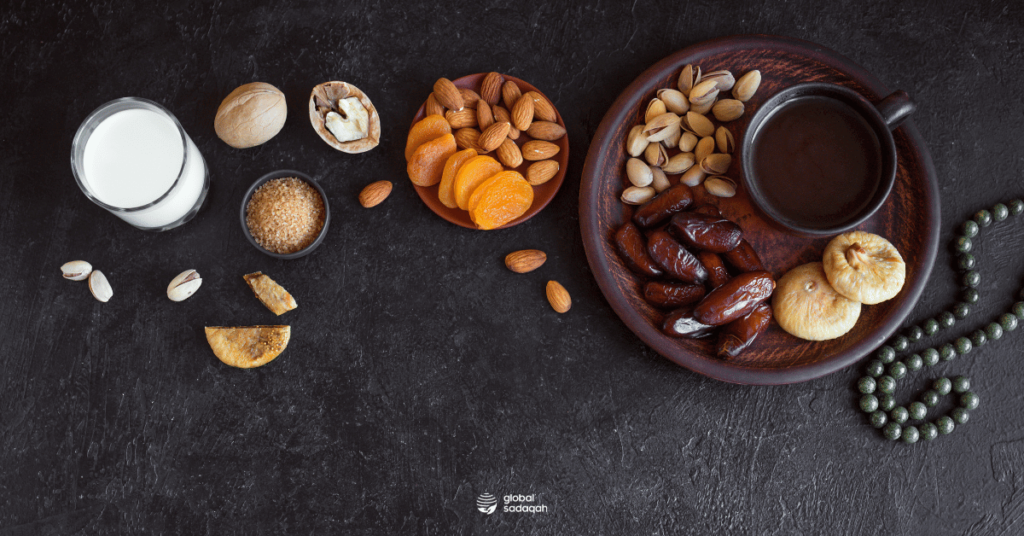Fasting throughout the holy month of Ramadan holds a vital and highly rewardable role in faith; it is the fourth pillar of Islam, and is an obligatory act of worship that is uncompromisable.
Yet, it is from the mercy of Allah that those who are unable to fulfill this fast due to reasons that are out of their capabilities are accommodated to compensate for the fast with a specific form of donation known as the “Fidya”.
What does Fidya mean?

Fidya is a type of food donation given to fulfill feeding one poor person for one meal for each day of fasting that is missed by the individual. It is only applicable when there are persistent reasons that prevent the person from fasting such as old age or a chronic or incurable illness.
These reasons must be those that potentially also inhibit the person from ever being able to replace the missed fast. Allah mentions in the Holy Quran: “…And upon those who are able [to fast, but with hardship] – a ransom [as substitute] of feeding a poor person [each day]..” – [Quran: 2:184].
How is Fidya measured?

Although it may seem calculated and structured today, fidya simply comes down to feeding one poor individual as a replacement for the day’s missed fast. This is why one can provide a ready full meal as fidya. An important aspect that has to be taken into consideration while selecting the food is that it must be locally known and consumed and not a novelty that the locals might have trouble adjusting to and accordingly, it is important to base it on the usual habits of feeding the poor.
Fidya can also be given as a certain amount of staple food that is weighed to fulfill hunger. This amount was specified and implemented by prophet muhammad (pbuh) in the prophetic history and was previously set as a provision of grains or wheat that is weighed by two tools of measurement.
The first tool is a Sa’ which is a small container that is equivalent to 4 double-handfuls of grains and the second is a Mudd which is a small container that is equivalent to one double-handful of grains. These tools of measurement were designed based on the fact that people during the time of the prophet (pubh) heavily depended on staple food for sustenance and this was the best form of assistance to be given to those in need then.
Calculating Fidya in today’s society

Today, the fidyah amount is said to be equivalent to either a Sa’, half of a Sa’, or a Mudd depending on the opinion chosen to follow. These tools are traditional volumes of measure belonging to the time of the Prophet and are no longer in existence.
Accordingly, the way the calculation of Fidyah applies today is through the estimated conversion of the amount of grain donation from these measurements to grams/ kilograms. There is a difference in the exact equivalent weight, yet the two commonly suggested calculations are as follows:
| Tool of measurement | Calculation 1 | Calculation 2 |
| Mudd(1 double-handful) | 0.650kg | 0.675kg |
| Half a Sa’(2 double-handfuls) | 1.3kg | 1.35 kg |
| Sa’(4 double-handfuls) | 2.6kg | 2.7kg |
There is also the possibility of paying the value of Fidya in a currency amount as per a legal opinion issued by a number of scholars stating that it is permissible to do so.
The amount paid in currency must be equivalent to the required food measurement and this money will be used to cover the purchase of food which will then be given to the poor. This amount to be paid is calculated and set by religious authorities and fluctuates in different countries depending on various factors including the currency and the market pricings of areas.
The amount can also be calculated individually through the following formula:
Number of Fast Missed x Price of kg of food = Amount of Fidyah Due
The process of disbursing Fidya has also been facilitated by various parties, institutions and platforms. These have assisted in organising and distributing the Fidya according to the needs of the modern population around the world.
Previously, the Fidya was personally handled and given in out to those in need within the person’s own community and circles. With the increase in the Muslim population, individuals can outsource the task of distribution to these institutes who will oversee that this Fidya reaches the appropriate parties worldwide and ensure that the full global Muslim community is included in this process.
You can now pay your fidya through GlobalSadaqah’s latest campaign. Your provision will go to Zakat eligible campaigns.

